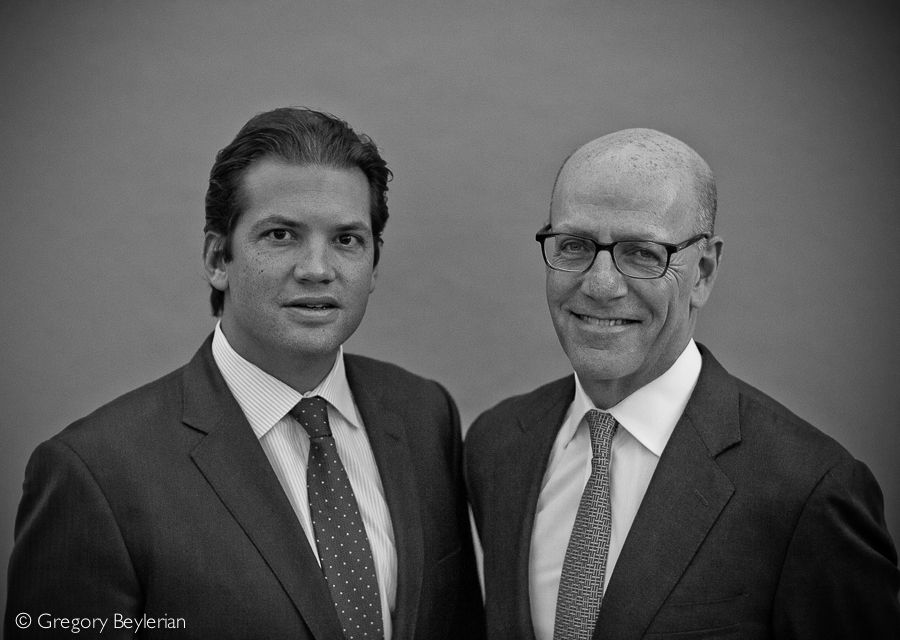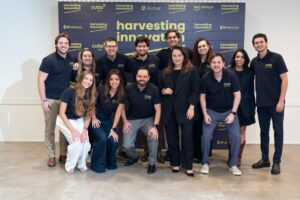Pontifax Food and Agriculture Technology Fund (Pontifax AgTech) has closed its first fund on $105 million, raising capital predominantly from institutional investors including university endowments, funds of funds, insurance companies, and asset managers.
The growth equity fund held a first close of the fund in March 2016 after raising $25 million in cornerstone funding from a few family offices. They included two high profile private equity magnates — David Bonderman, founder of private equity giant TPG Capital, and Tony Ressler, founder of Ares Management, the global alternative investment manager — media mogul Haim Saban, and Stewart Resnick, founder of The Wonderful Company, the largest vertically integrated permanent crop company in North America.
Pontifax was initially targeting $200 million, but at the request of investors (LPs) the target was reduced to give existing portfolio companies a greater weighting in the fund, according to Ben Belldegrun, cofounder of Pontifax AgTech.
Pontifax launched last year with four investments in its portfolio across agtech categories: enhanced efficiency fertilizer company Anuvia Plant Nutrients, AgBiome, a biological crop protection startup, robotics company Blue River Technology, and ag software business Conservis. It later added CRISPR gene editing platform Caribou Biosciences. The fund has already exited Blue River, which it invested in at Series B stage, acquired by John Deere for $305 million last month posting around a 4x return for investors in the Series B round, according to sources.
The fund, which invests at the growth equity stage of a startup’s life — likely Series B stage or later — is targeting a relatively short timeline for investments of between three and five years, although in the case of Blue River it was even shorter at 20 months, said Phil Erlanger, cofounder of Pontifax AgTech.
It aims to make up to 10 investments in total, investing around $5 million in each company initially, with a further $10 million to $15 million for follow-on funding.
“We feel this strategy manages our risk as we are able to get to know the company better, and become integral in its strategy and execution, and then re-invest depending on positive or negative developments,” said Erlanger. “We have an enormous pipeline and several years to deploy our fund so we are being very careful and methodical with our investment decisions, intending to make investments in the short term and then on a recurring basis as actively as we can. We think this is a differentiator compared to other agtech funds that tend to be earlier stage.”
“Agriculture is a challenging sector and it takes time to see results. People find it hard to understand adoption at the grower level so we need to allow for things to get to a certain point before investing or re-investing,” Erlanger added.
While Pontifax will invest across the agtech landscape, it has a strong interest in life sciences, where the founders see a strong intersection between human health and agriculture. It also suits their skill set and franchise; Pontifax AgTech is partnered with Pontifax, a global life sciences venture capital investor based in Israel, which was founded by Eli Hurvitz, the founder of Teva Pharmaceuticals. Last year the firm recently closed its fourth biotech fund on $150 million. Pontifax AgTech is the first dedicated agtech fund for the firm and its fifth life sciences fund.
Solutions to labor and other constraints with automation and supply chain efficiency are also of interest, and revolutionizing the post-harvest supply chain, which is still “very inefficient, particularly in non-developed economies and specialty agriculture; we think that’s going to be an enormous opportunity,” said Erlanger. (Other investors agree; in the first half of 2017 Agribusiness Marketplace startups aiming to disrupt the relationship-based model of farmers procuring supplies and selling produce raised $301 million, a 2,488% year-over-year increase and a 42% increase in the number of deals, according to the AgFunder Agrifood Tech Investing Report.)
“We are a little less enamored with data given the saturation right now,” added Erlanger. “It’s clear that over the long term it’s critical and will be a huge driver for the industry, but there’s a lot of stuff out there and it’s not necessarily easy to thoughtfully assess each in terms of commercial success.”
Belldegrun also mentioned aquaculture, animal health, and vertical farming as other areas of interest.
Marketing a first time fund to institutional investors is not a quick process and involved education around agtech as none of them had invested in the segment before, according to the founders. Some of the fund’s investors were already invested in the agriculture sector, however.
“It was a very dynamic process where we learned a lot,” said Erlanger adding that many of the LPs invested in the fund through their real assets allocation. “We don’t want to overstate the ties between real assets and agtech, but in many cases, LPs with a real assets strategy and some exposure to agriculture were already completely bought into the fundamentals of the sector and the macro trends around dietary global changes, resource constraints, sustainability challenges and so on, that all create the imperative for increased agricultural productivity. So it tended to be a surprisingly easy bridge to build for those with that background to embrace technology as an important solution to dealing with those issues.”
The later stage of the fund also lent itself to these institutional investors that were more familiar with private equity investing, and the timelines and returns profiles involved, than venture capital.
Will this make fundraising for the next fund easier?
“It will be a whole different experience,” said Belldegrun. “The biggest challenge for us in raising this fund was that many LPs don’t do first time funds, so the second time around we will be able to show them exits and execution and prove out our platform.”





